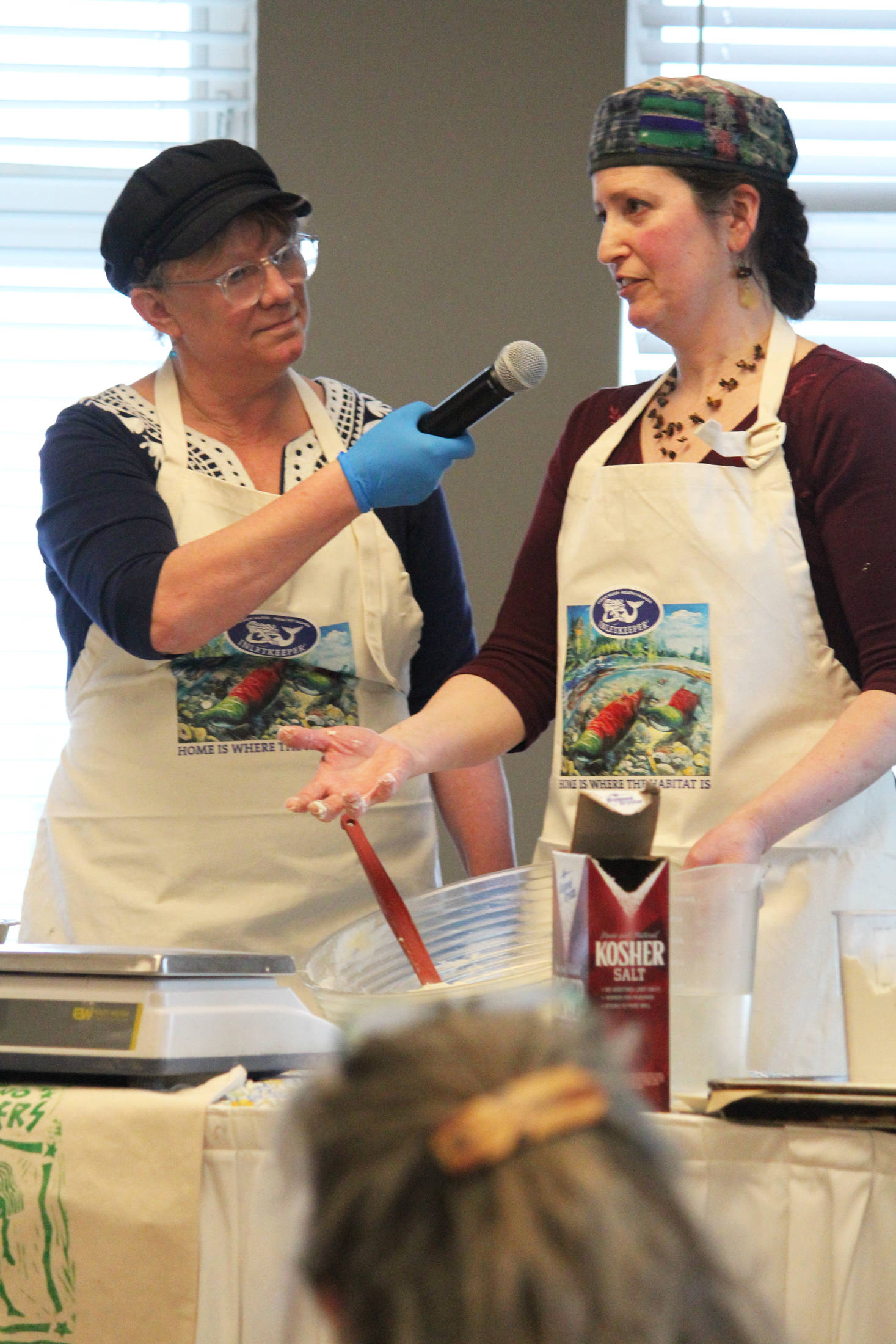There are some days when food is the only thing on one’s mind. For those involved in Alaska’s food system and agriculture, last weekend in Homer was one of those times.
Hundreds of participants from around the state and the Lower 48 converged at Land’s End Resort last Friday and Saturday for the 2019 Alaska Food Festival and Conference. It was two days of tasty food demos, presentations, and idea exchanges for how to improve upon Alaska’s food systems and security.
The state currently imports the majority of its food from the Lower 48, though more and more, local farming on a small level is cropping up around the state. One huge boost to this effort was the high-tunnel system initiative by the United States Department of Agriculture, which provided high-tunnel design greenhouses to farmers to help make more land productive and extend growing seasons. Homer was a pioneering example of how high tunnels could be implemented back when the program launched in 2010.
But food security was just one of many topics that conference participants dug into over the weekend. They talked about Alaska-caught salmon and how to get more of it into Alaska schools to feed students. They addressed farmers markets and how to make them more accessible to lower-income families. Presenters discussed the importance of bringing indigenous and Native foods back into the public sphere in places like hospitals.
Hosted by the Alaska Food Policy Council, the conference sought to strengthen Alaska’s food safety net and maximize its current food system, both statewide and on a community system basis.
Several local Homer businesses and food advocates were highlighted throughout the conference. Two Sisters Bakery presented a demonstration on baking with sourdough, while Kirsten and Mandy Dixon, owners of Tutka Bay Lodge and La Baleine on the Homer Spit, cooked up a Moroccan-style dish, but with Alaska ingredients.
Jeff Lockwood, who hosts a KBBI Public Radio food show, led a hands-on workshop on pork sausage, while Nikki Place of Love Farm schooled participants in the art of fermented vegetables and kombucha.
Kyra Wagner of the Homer Farmers Market led a discussion of food systems on the southern Kenai Peninsula and how they interact with each other. Emily Garrity, owner of Twitter Creek Gardens, gave a presentation that pealed back the romantic ideas often associated with farming and small scale agriculture to reveal the hard work and sometimes harsh realities it involves.
Over the next few weeks, the Homer News will publish a series of stories from the food conference that highlight changes on the Alaska agricultural frontier. They will focus on programs that get Alaska fish into Alaska schools, the trend of farmers markets working to be more accessible to Supplemental Nutrition Assistance Program (SNAP) users, how community food systems can use mapping to highlight or improve upon those systems, and the process of making indigenous foods more readily available in the public sphere.
Reach Megan Pacer at mpacer@homernews.com.

